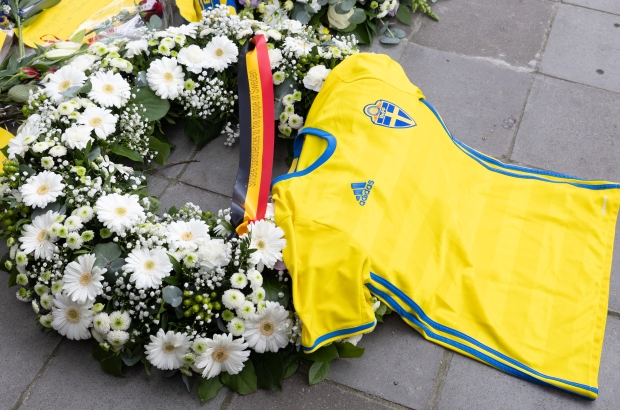- Daily & Weekly newsletters
- Buy & download The Bulletin
- Comment on our articles
Prosecutor’s office criticised for handling of Brussels shooting case
Belgium’s Supreme Judicial Council (SJC) has denounced "archaic work processes" at the Brussels prosecutor's office in the case of last year’s shooting involving three Swedish football supporters.
The dossier relating to Tunisian Abdessalem Lassoued, who shot the three football fans, has remained on hold at the international cooperation department of the Brussels public prosecutor's office partly due to a lack of internal control and a high workload, according to the SJC's special investigation, published this week.
Soon after the attack, it emerged that the terror suspect was in Belgium without a residence permit. He turned out to be no stranger to police in Tunisia and was also previously in prison in Sweden.
But Lassoued was never apprehended before the attack, because his file did not set off alarm bells anywhere due to a combination of factors.
The SJC wanted to investigate how it could happen that an extradition request from Tunisia went unnoticed and untreated at the Brussels prosecutor's office.
In its investigation, the SJC found, among other things, that “the handling of a passive extradition file, both by the magistrate and administrative staff, is not clearly defined” and “the mechanisms for following up files are weak, not formalised and depend mainly on individuals”.
SJC president Hilde Melotte denounced the sloppy way the case was handled.
“Despite all the competence, expertise and goodwill of the staff of the international cooperation department of the Brussels prosecutor's office, we note that this case was not handled and followed up as it should have been,” Melotte said.
“The dedicated staff indicate that they are doing all they can with limited resources and we should listen to that.”
The service has to deal with cases on the merits as well as check files.
“Due to high workloads, the well-intentioned application of sometimes archaic work processes and, at the same time, the lack of conclusive control and work processes, internal control sometimes falls by the wayside,” Melotte said.
“Especially when the priority is often and understandably on handling files on the merits, rather than checking and double-checking. That said, gaps in work processes definitely need to be closed urgently. A conclusive set of work processes together with better internal control should avoid repetition.”
In its conclusion, the SJC report urges that “conclusive work processes and additional internal control should therefore become priorities in the policy plan of the future public prosecutor of Brussels”.
That position can now be filled after parliament amended the law in May 2024 because previous appointment attempts failed.
In addition to what the CSJ describes as a weak culture of internal control, the absence of a monitoring system and a lack of clarity at management level, staff shortages are also causing problems.
“One place in 10 is not filled, and the number of cases to be dealt with in the international cooperation department has increased by 35% between 2019 and 2023,” the report states.
“In this department, administrative staff have to do more and more background work. Non-urgent cases are piling up during the leave periods of the magistrate responsible, who is on his own and has no replacement.”



















